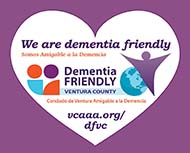By: Sherry Netherland, Director of Special Projects for Assisted Healthcare Services
For many of us, having people assist us who are not friends or family can be a new experience. All too often we must adapt to having strangers in our home, or the home of a loved one, during a time of crisis – a time when illness obligates us to hire outside help.
Having hired help can be especially difficult for independent-minded seniors who see having a caregiver in the home as a sign that they are “elderly” or infirm and no longer capable of taking care of themselves – a sign that they are on a slippery slope to the end of their lives. (This is important to mention because it can also be a trigger for depression – an all too common problem in seniors.)
The resistance to having personal assistance can be so strong that when faced with the unwanted prospect of a caregiver, senior adults have been known to sabotage the efforts of their children to hire personal care attendants. This can start the caregiver/patient relationship on a bad foot. Clients will find fault with everything the caregiver does just to prove having a caregiver won’t work. “They’re a terrible cook;” “They forgot to put fabric softener in with the wash;” “They’re too tall;” “They’re too short!” Some of these issues might seem insignificant, but if you are dead set against having help in the home, it will seem as if your caregiver can do nothing right.
Here are 5 valuable suggestions for integrating a caregiver into your life or the life of a loved one:
1. Work with a reputable agency. See the previous blog post, “The Assisted Difference” to learn about the advantages of working with an agency.
2. Try out an agency by using them for respite assistance. If you are the primary caregiver for your parent or other relative, you can hire an agency for a short term, temporary commitment to allow yourself some relief. This will give you an opportunity to assess how responsive the agency is to you or your family member’s needs. You can test out their customer service.
3. Start small. If you are fortunate to be hiring someone prior to a health crisis, begin by having someone to your home two or three times a week for four hours per day. This might be an opportunity for an outing, or company on a doctor’s appointment, or assistance with bathing, changing the bed linens and laundry. Perhaps a few meals can be made in advance for re-heating on days when you are by yourself. This will provide a non-threatening way to establish if you find the caregiver compatible with your needs.
Adjusting to a caregiver is also about matching personalities – something that cannot always be predicted. Sometimes the best caregiver an agency has will not mesh with a client simply because they just don’t get along. One of the key advantages to having an agency assist you is you can change caregivers easily. The caregiver doesn’t have to have done anything wrong for you to switch. A good agency will understand that at the start of a client relationship, there will need to be a lot of attention paid to the adjustment period.
4. When requesting a caregiver from an agency, be as detailed as possible about your needs and any special requirements. For example:
a. Are there vision problems? How are these dealt with? Special lighting, special glasses, other assistive devices, etc.
b. Are there hearing problems? How are these dealt with? Is there a hearing aide(s)? How independent are you with the hearing aide? Are there special assistive devices for the television, telephone, etc.?
c. Are there special dietary requirements?
d. Are there pets in the home? The agency will need to provide caregivers who are not allergic. Not all pets are welcoming to strangers in the home. Your loving dog might not react favorably to a stranger who is holding you.
e. Are there special social instructions? Are there individuals who are not allowed to visit?
f. Is incontinence a problem?
g. Is there special equipment used for ambulation? Walker, wheelchair, cane?
h. Are there special likes/dislikes for leisure time activities?
5. Remember, when going through an agency, the caregiver is an employee of the agency. They are not the employee of the family. They are not intended to be “like a member of your family.” Maintain clear, professional boundaries. Problems are more likely to occur in the caregiver/client relationship arise when those boundaries are blurred.
Once a strong caregiver/client relationship is established, the peace of mind is priceless.
Sherry Netherland is the Director of Special Projects for Assisted Healthcare Services, a Medicare certified, CHAP accredited home health agency with 7 branches in California and Arizona. She founded the Assisted Speakers Bureau and she speaks on a variety of healthcare related issues. To learn more about private duty nursing and how Assisted can help, http://www.assisted1.com/types-of-care/home-health/.







